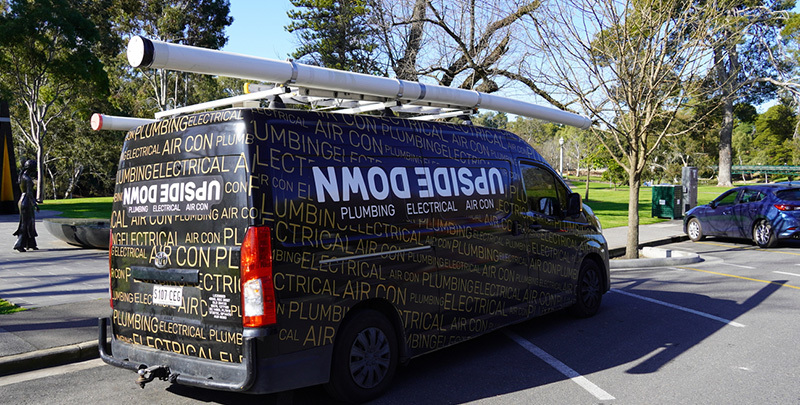Ducted AC vs Evaporative Cooling: What’s the difference?

Summer in Australia can get pretty scorching; having an efficient cooling system in place can make all the difference between sweltering and comfortable.
If you’re looking to install an air conditioning system in your home, you’ve likely come across ducted AC and evaporative cooling as popular options. But what sets them apart, and which one should you choose?
This blog post breaks down the key differences to help you make an informed decision.
Ducted AC Explained
Ducted air conditioners, also called ducted air conditioning systems or central air systems, are designed to cool the entire home via individual vents in each room. A ducted AC system consists of an outdoor unit, an indoor unit concealed within your roof space, and a network of ducts connecting all the components. The cooled air is pumped through this network and distributed evenly across different rooms.
Ducted air conditioning systems are capable of providing complete temperature control to keep your entire home at a comfortable, consistent temperature.
Evaporative Cooling: How It Works
Evaporative coolers, or swamp coolers, work on the principle of evaporation, utilising water-soaked cooling pads to absorb the heat in the air. As hot air is drawn into the evaporative cooling unit, it passes through the cooling pads, and the heat gets absorbed, causing the water to evaporate. This process results in cool, fresh air blowing through your house via ducts and vents.
Unlike ducted air conditioners, which recirculate the air, evaporative coolers use fresh outside air – this means you’ll need to keep your windows open, so the cool air can push out the hot air. Additionally, evaporative cooling is most effective when the outside air is hot and dry.
The Primary Differences
Now that you understand how both ducted air conditioners and evaporative cooling work, it’s time to finally learn about their primary differences, which are the following:
- Cooling capacity: The cooling capacity of a ducted air conditioning system is powerful enough to cool down your entire home with greater efficiency. On the other hand, evaporative coolers work best in spaces with low humidity, as their cooling effect declines in humid environments.
- Air quality: Evaporative cooling systems use fresh air from the outdoors to cool the house, resulting in better air quality, as the air isn’t recycled. Ducted air conditioners recirculate the existing air inside your home, which might not be as fresh as the air from evaporative coolers.
- Energy efficiency: Evaporative coolers are generally considered more energy-efficient than ducted air conditioning systems, as they consume less power. However, advancements in ducted AC technology have brought about more energy-efficient models, closing the gap between the two.
- Humidity control: Ducted air conditioners are better at managing humidity levels indoors, as they remove excess moisture from the air while cooling. Evaporative coolers, on the other hand, can make your home feel more humid since they work by adding moisture to the air.
- Adapting to individual room needs: Ducted air conditioning systems offer the advantage of being able to control the temperature in each room individually. Adjusting vents or opting for a zoned system can help you customise the temperature for different areas of your house. Evaporative coolers, however, cannot target specific rooms, and the cooling effect may vary depending on the room’s size and location.
Choosing the Right Cooling Solution for Your Home
So, which one should you pick for your home – ducted AC or evaporative cooling? The best choice for you will largely depend on your climate, your cooling preferences, and your energy-efficiency needs.
If you live in a drier climate where humidity levels aren’t too high, an evaporative cooler can be an effective and energy-efficient cooling option. However, if you reside in a place with high humidity or want better temperature control with the added ability to adapt to individual room needs, a ducted air conditioning system might be your best bet.
Regardless of which cooling system you choose, ensure it is installed and maintained by a licensed professional to ensure it works effectively, efficiently, and safely for years to come. Research the different models available, keeping in mind the key differences we’ve discussed, and select the one that suits your home and lifestyle the best. Enjoy a cool and comfortable home during those sweltering Aussie summers!
Please note: This information is provided for advice purposes only. Regulations differ from state to state, so please consult your local authorities or an industry professional before proceeding with any work. See our Terms & Conditions here.